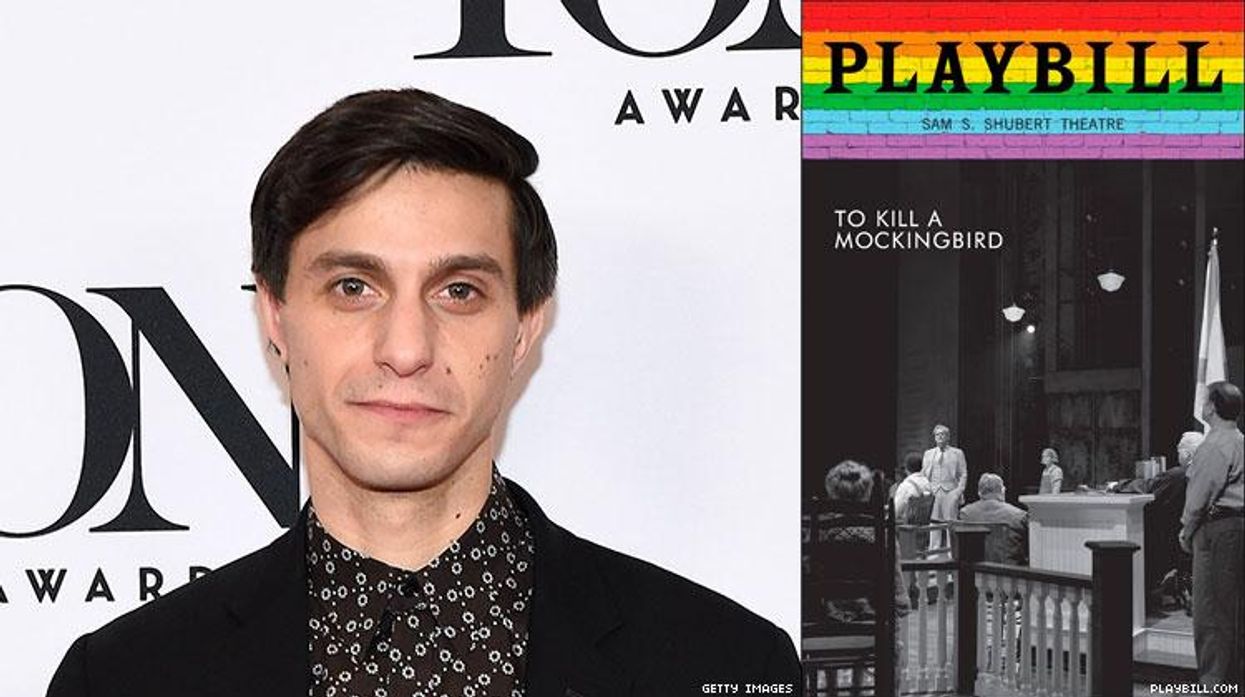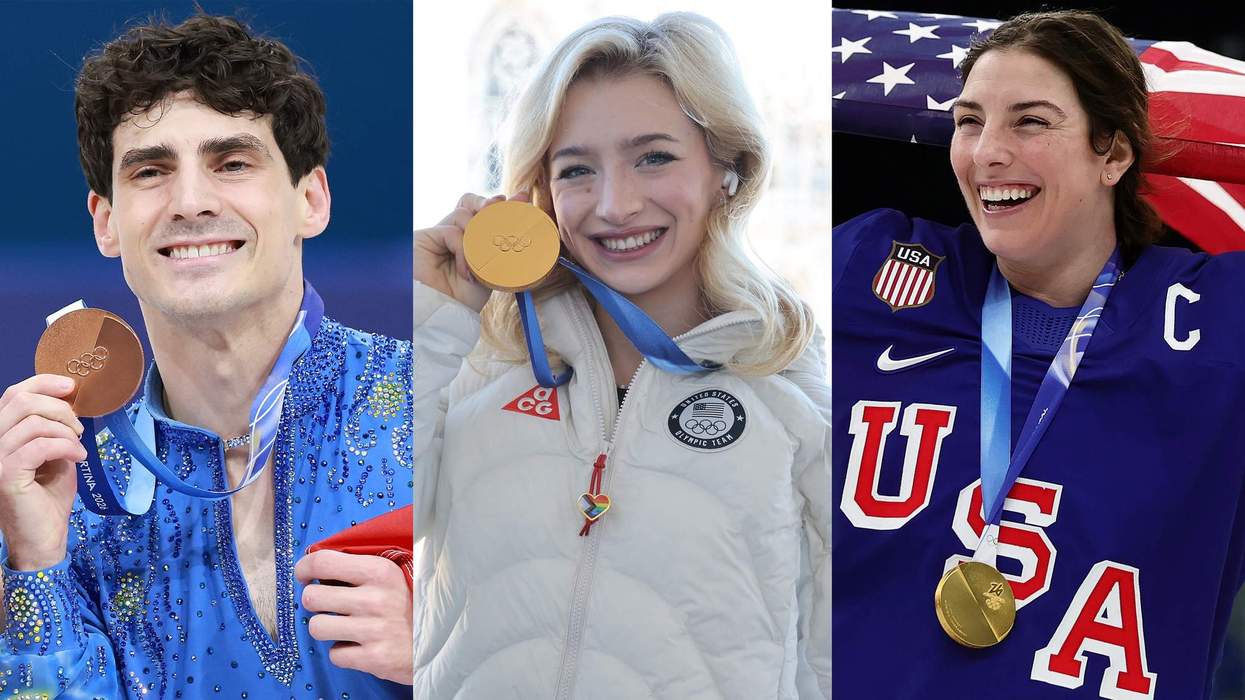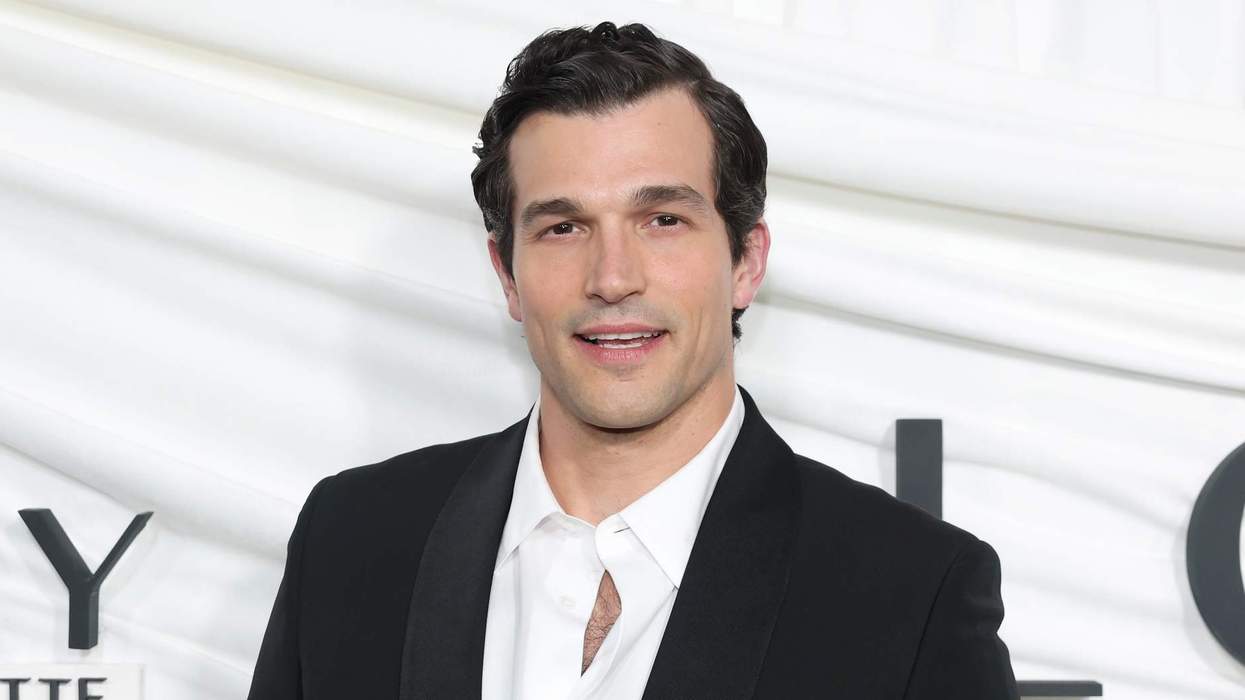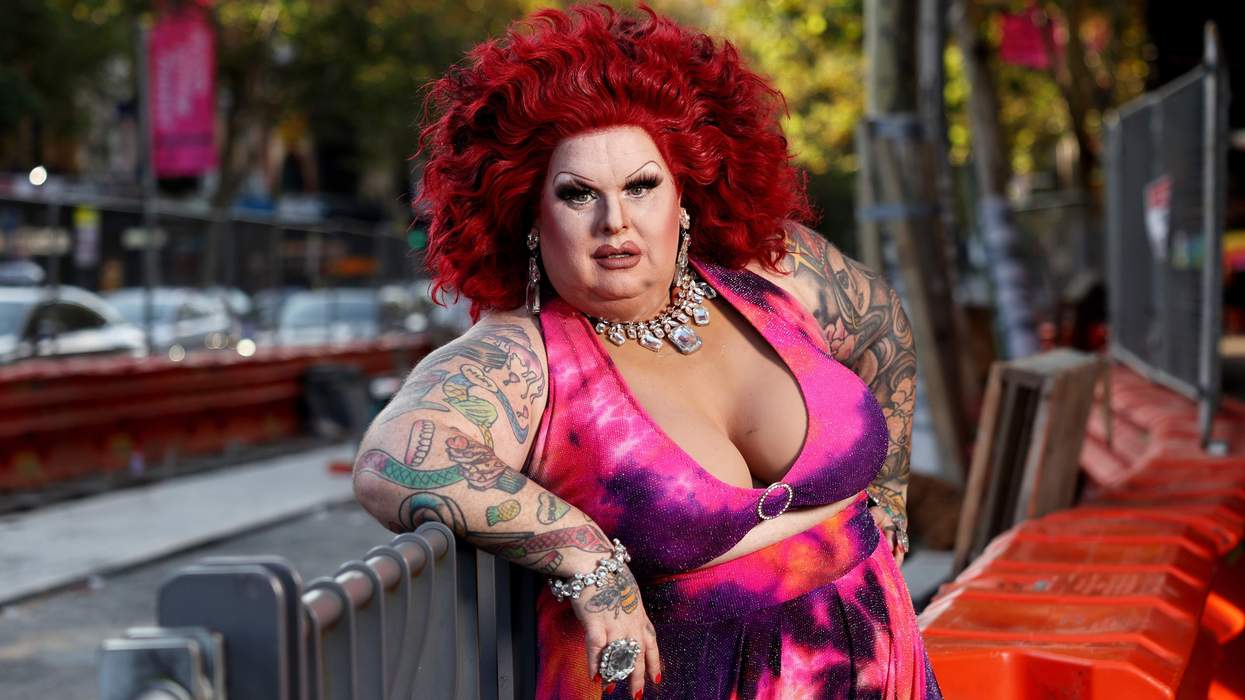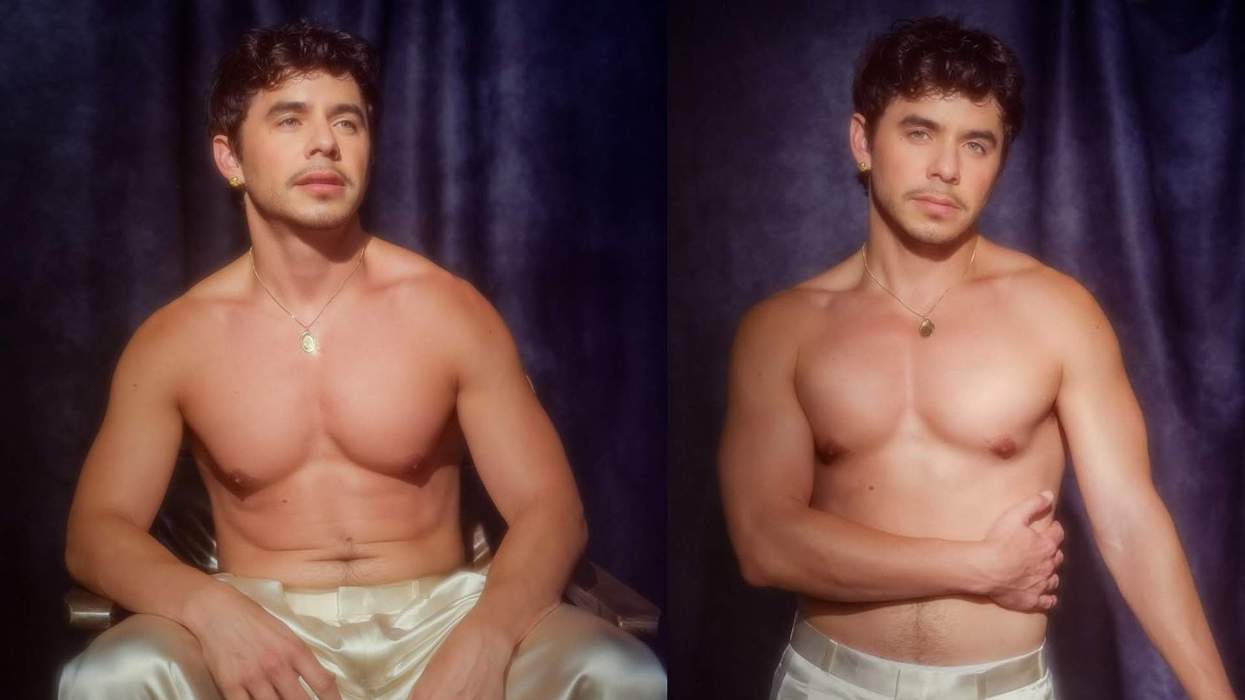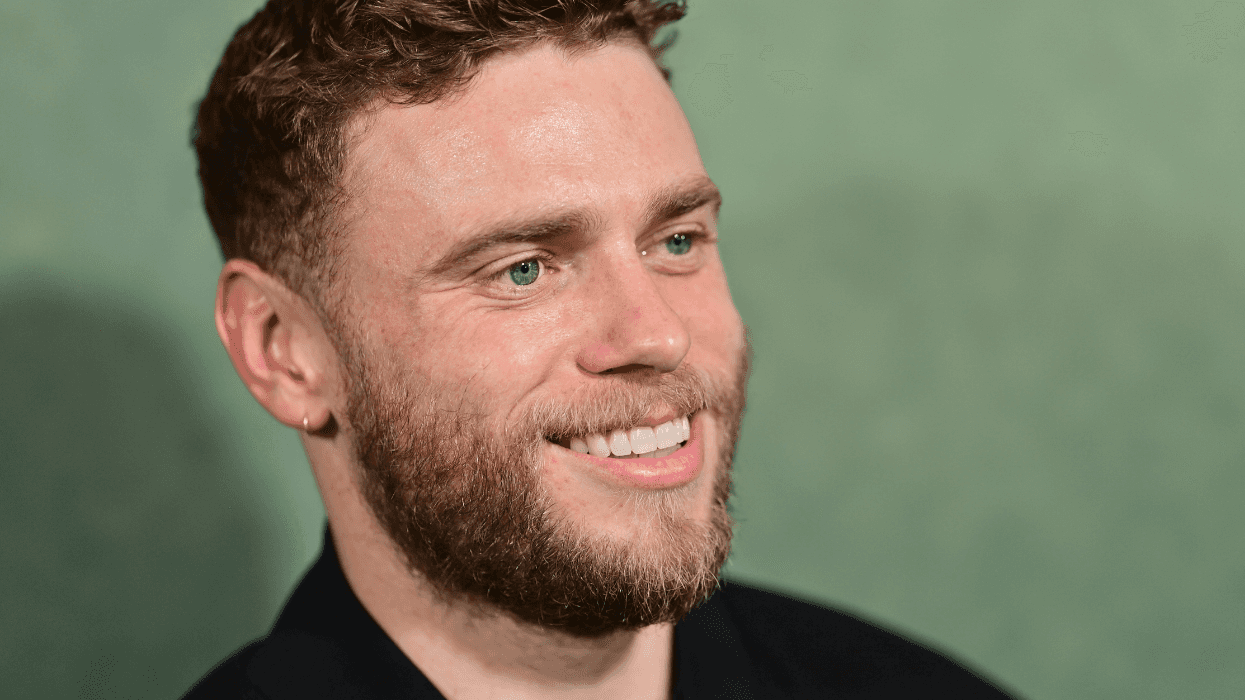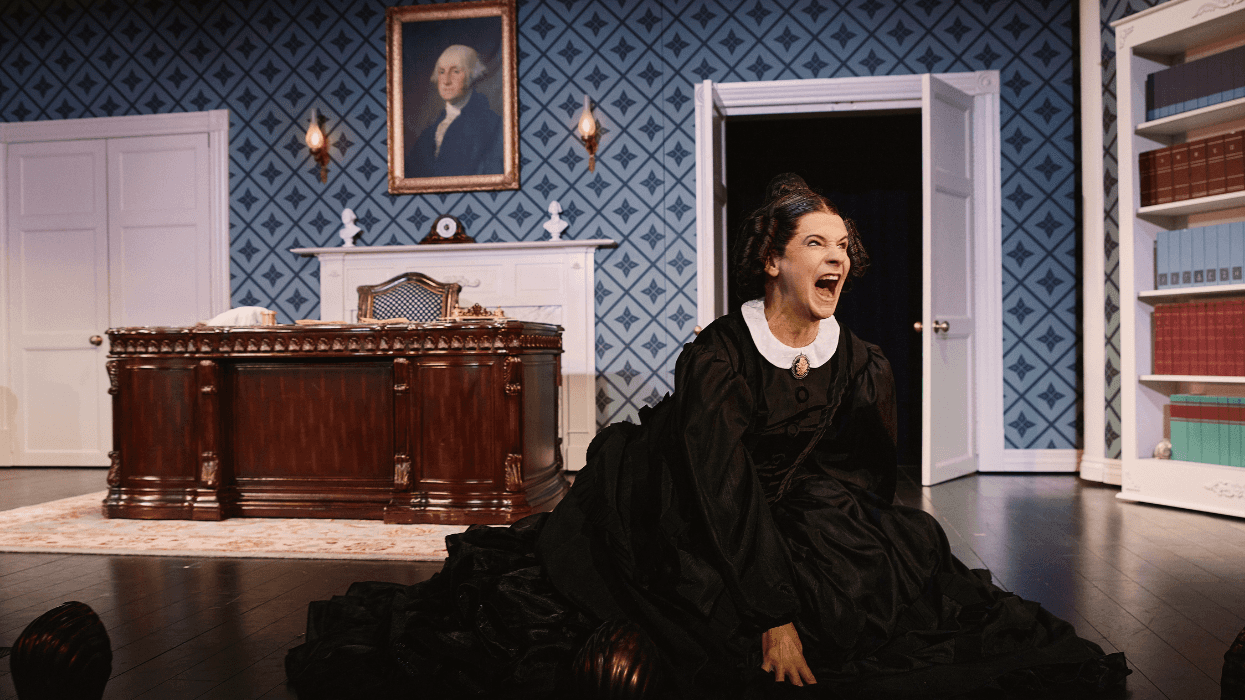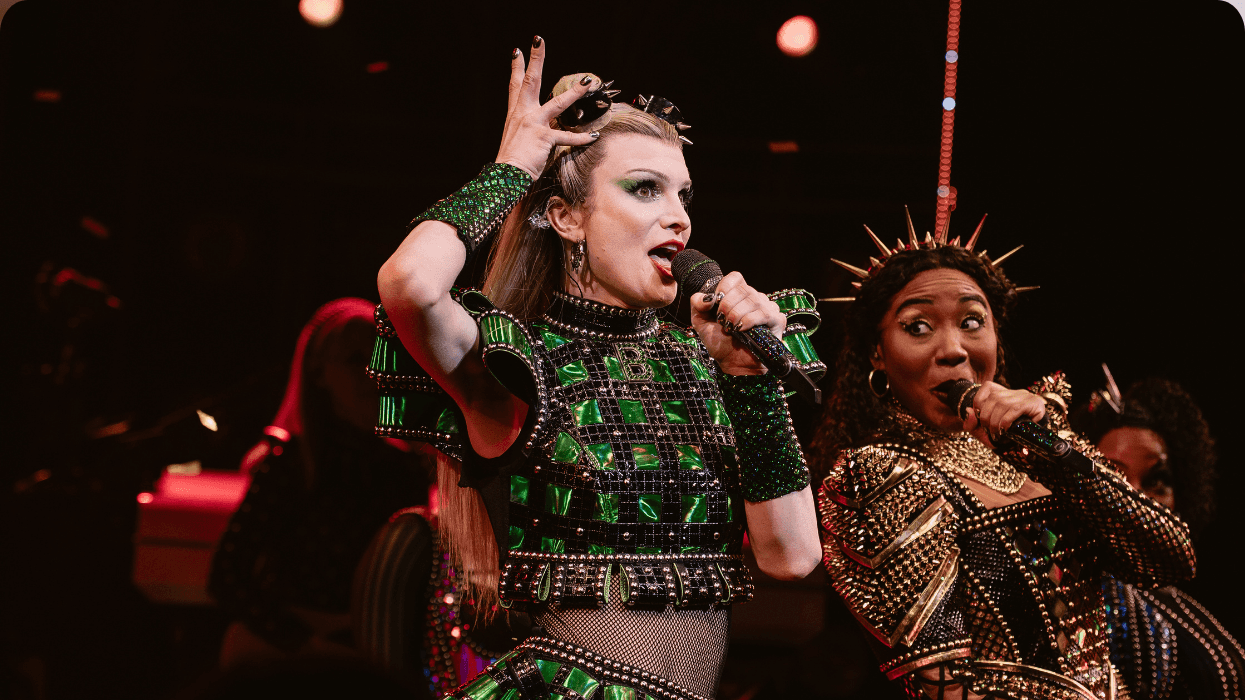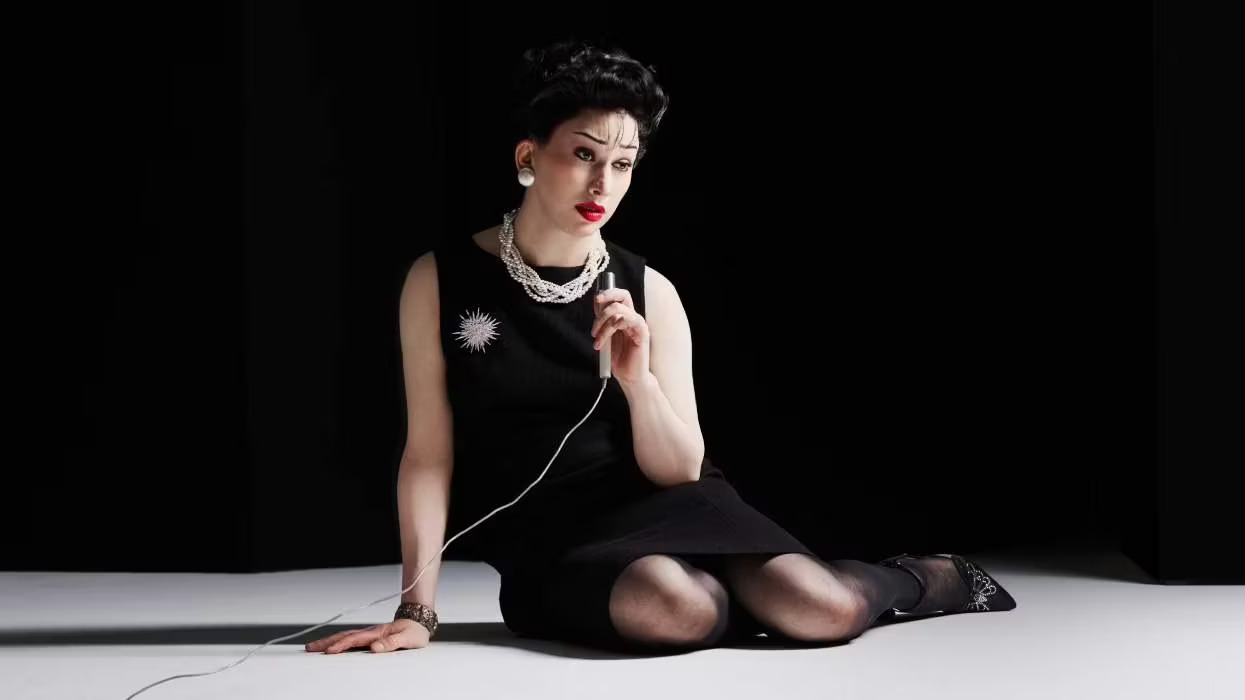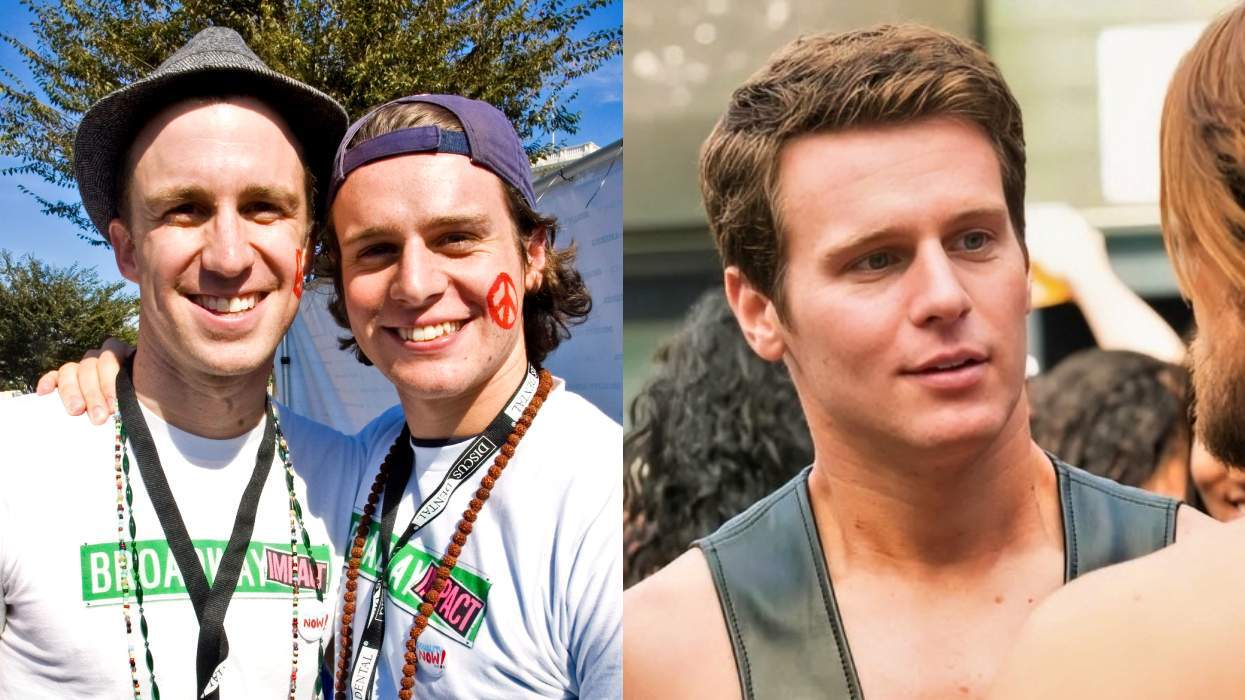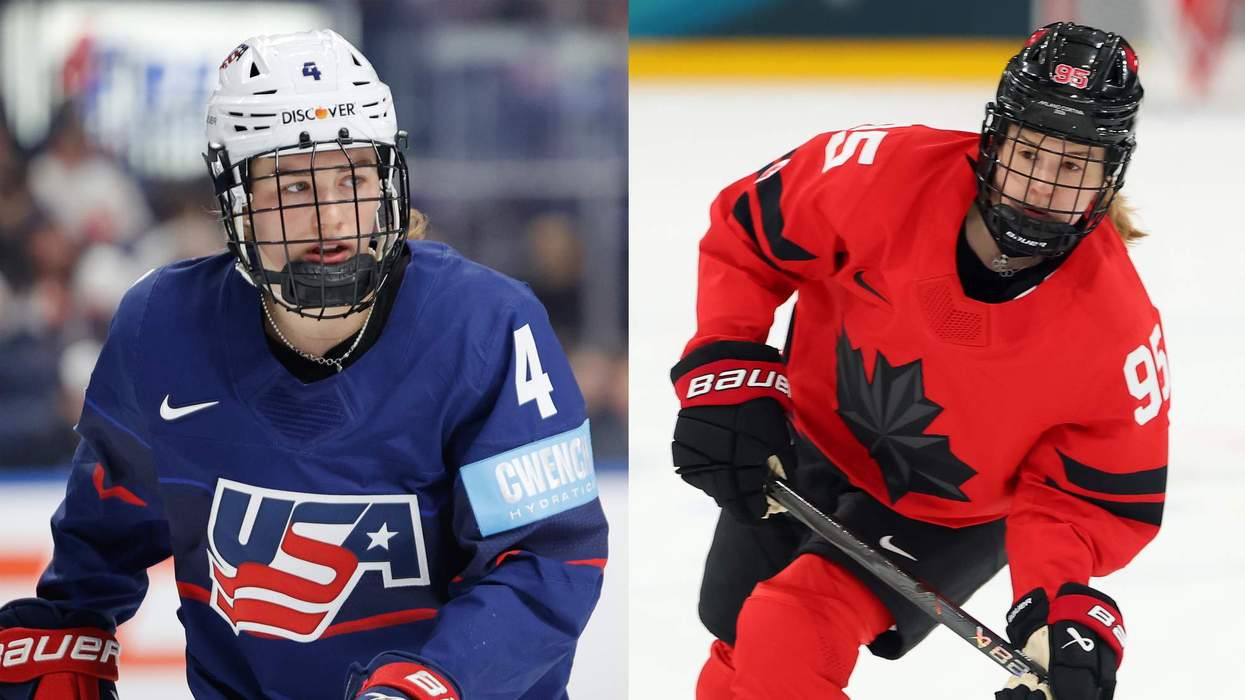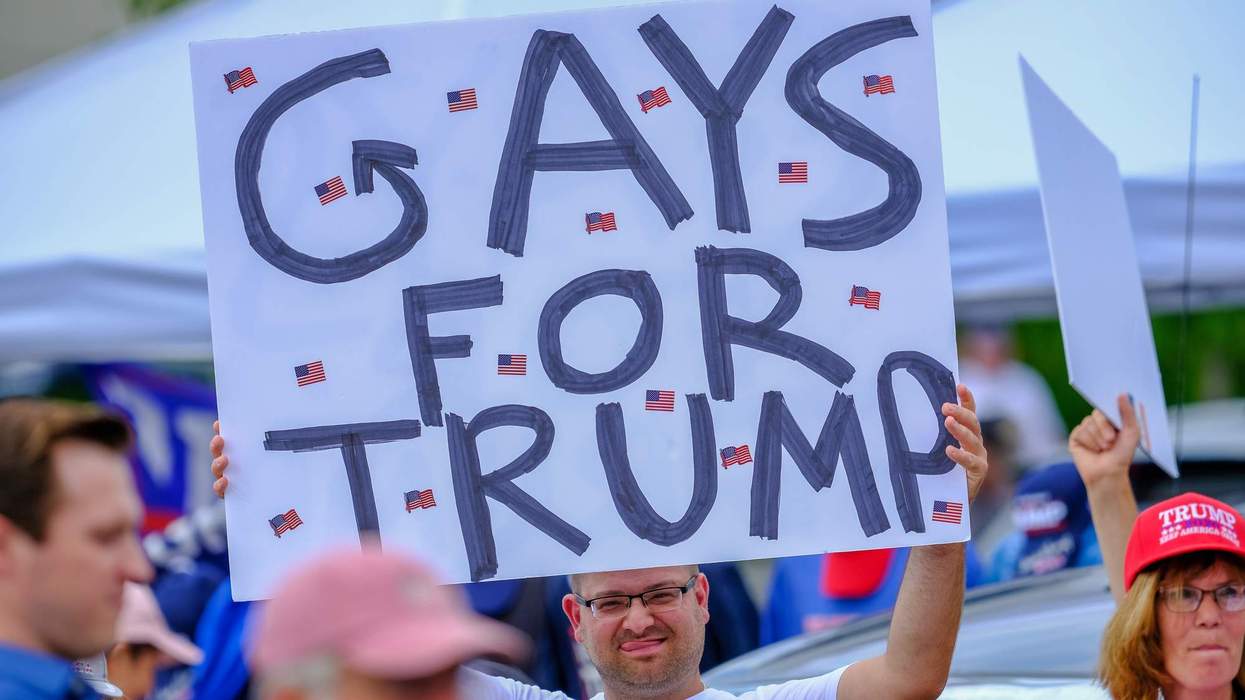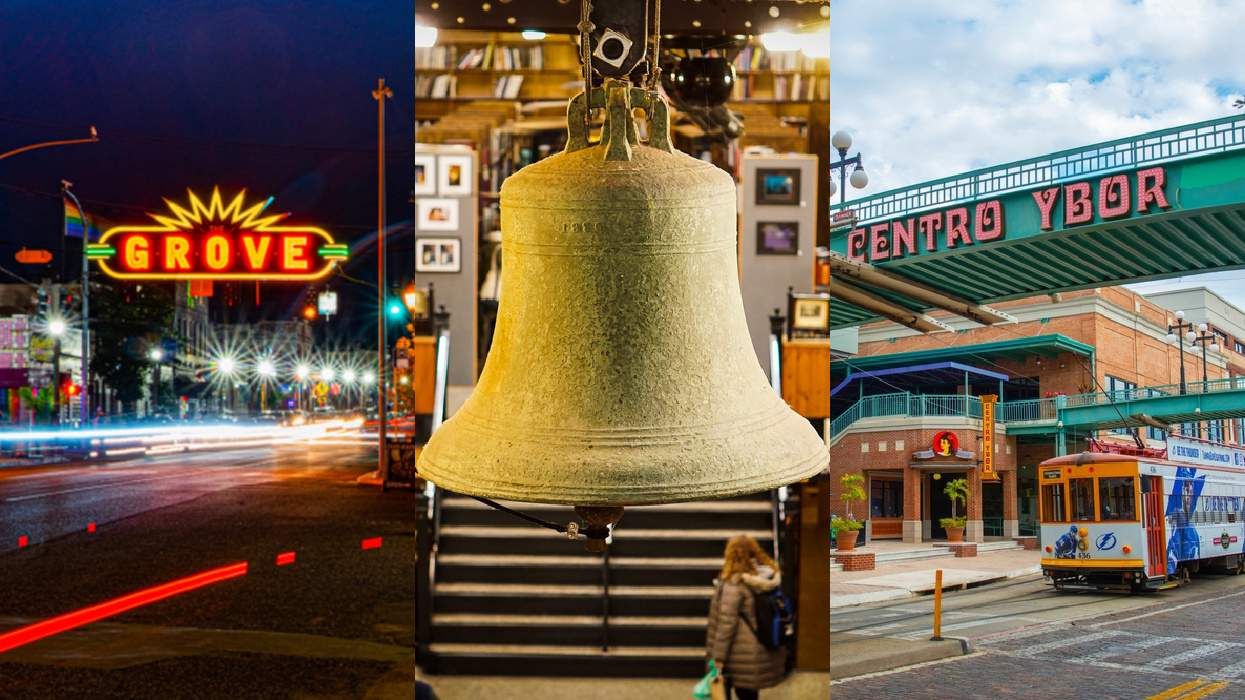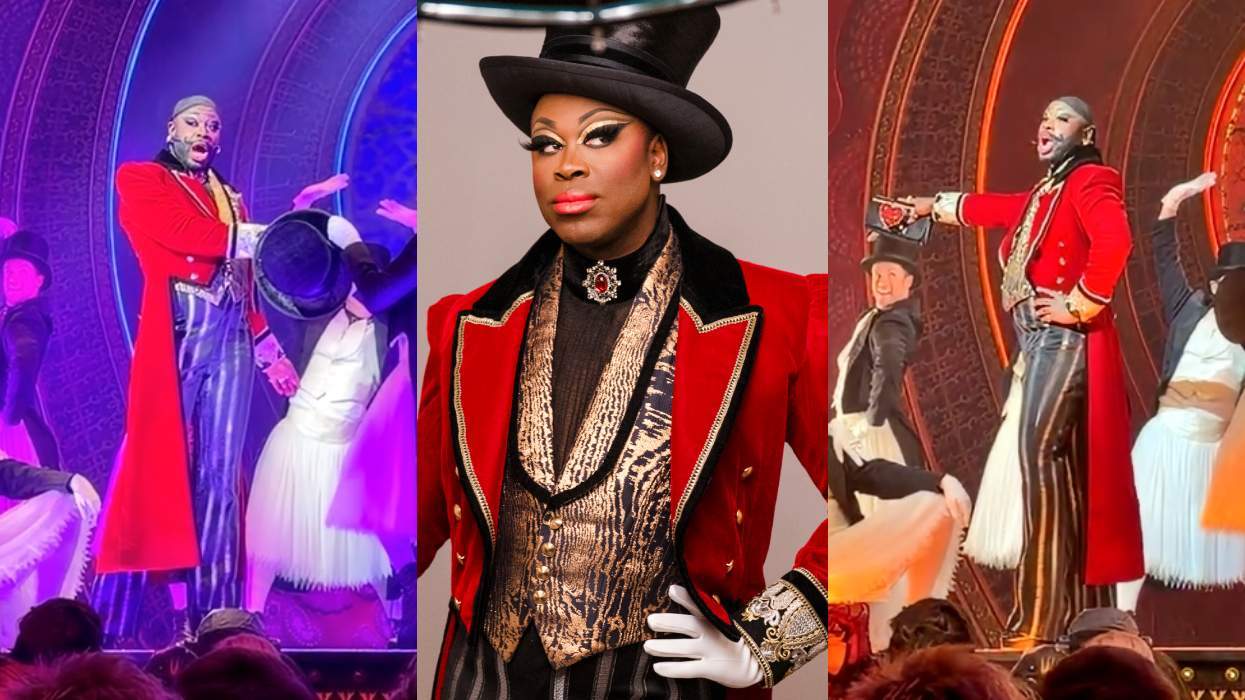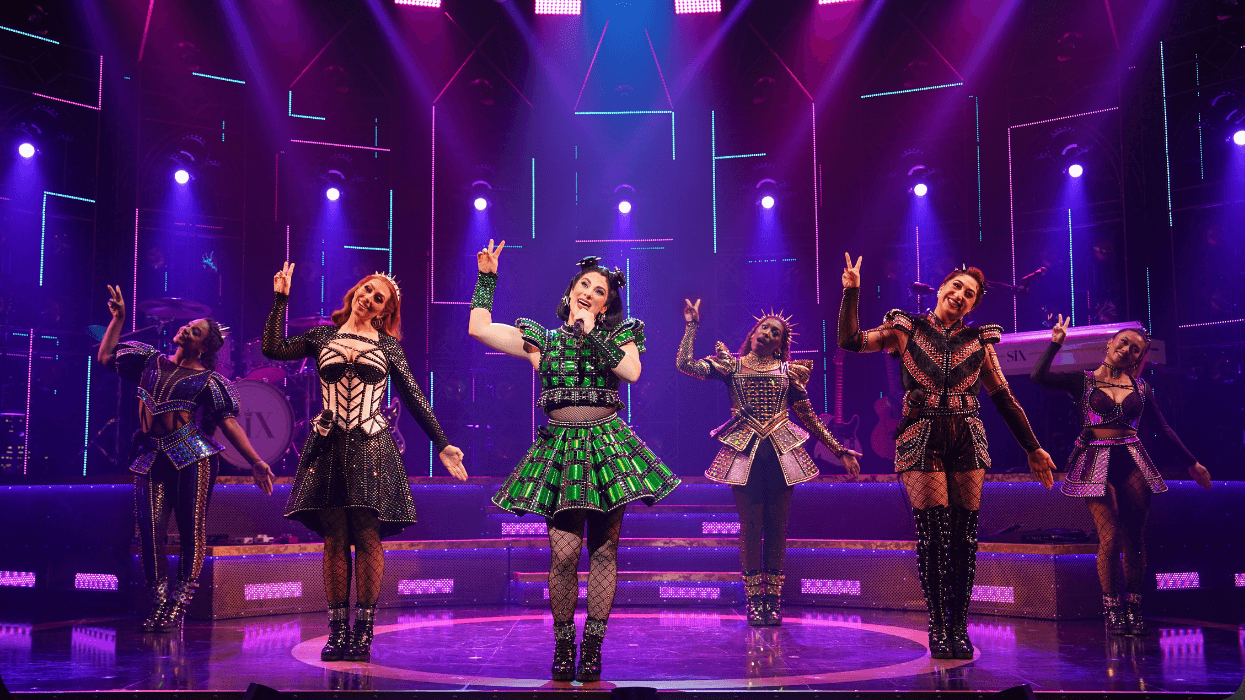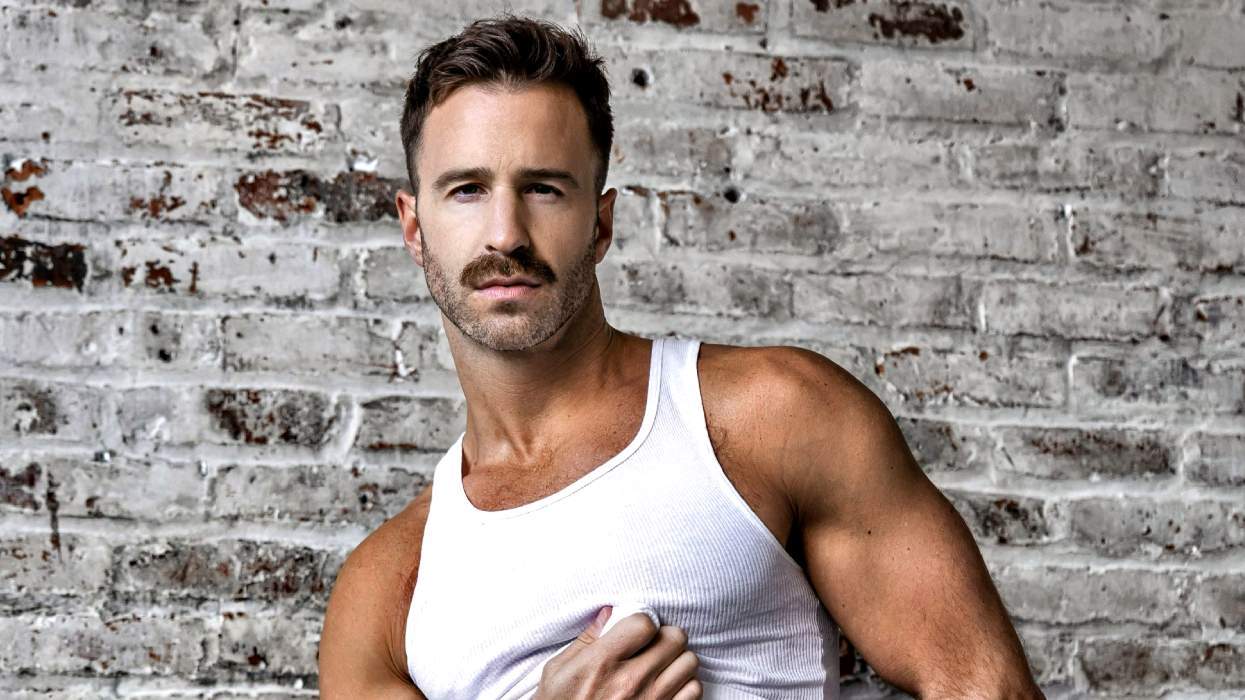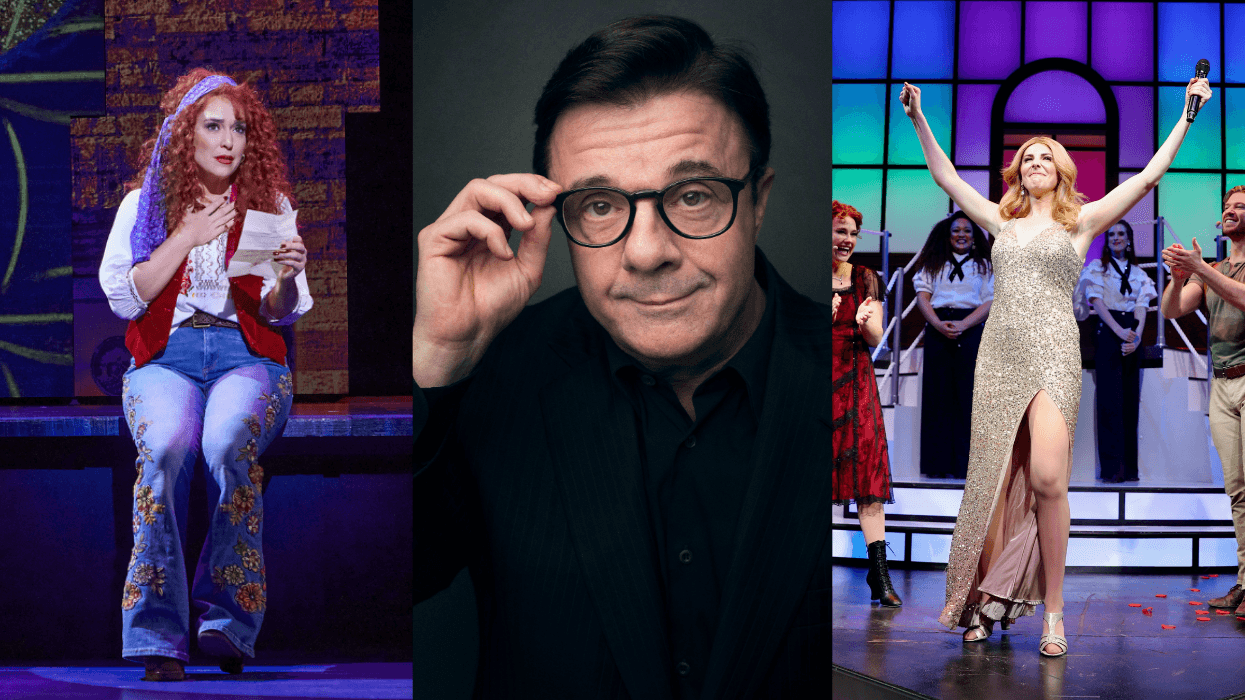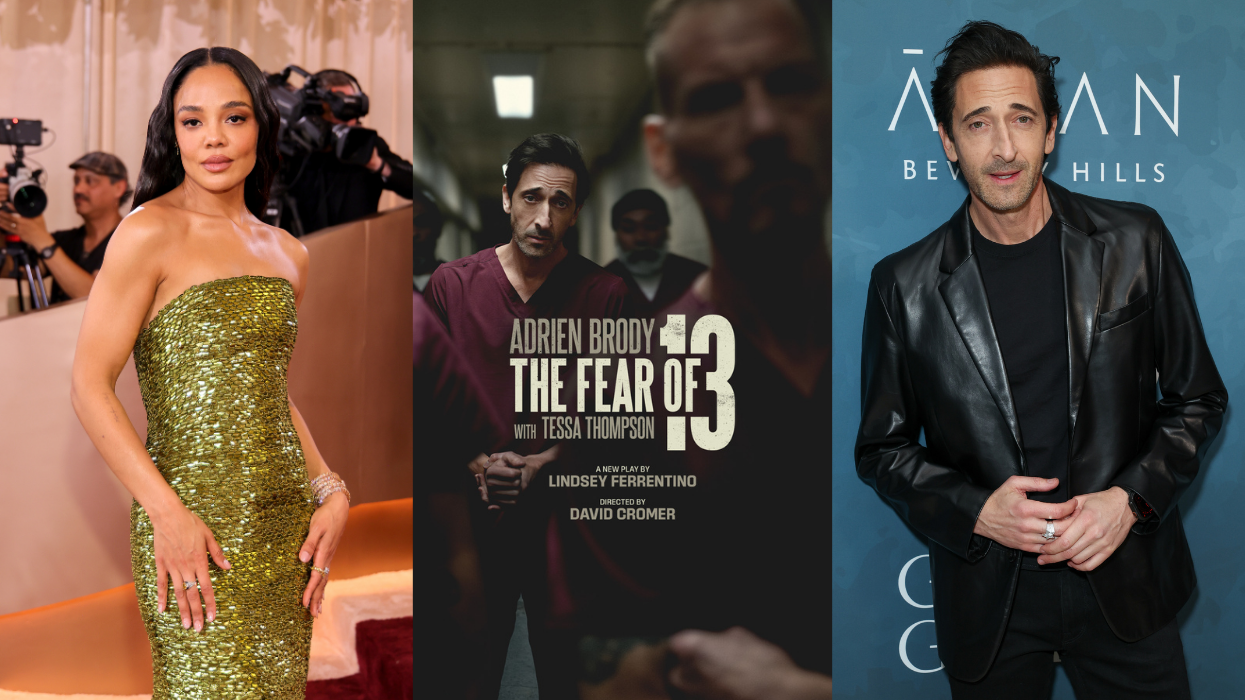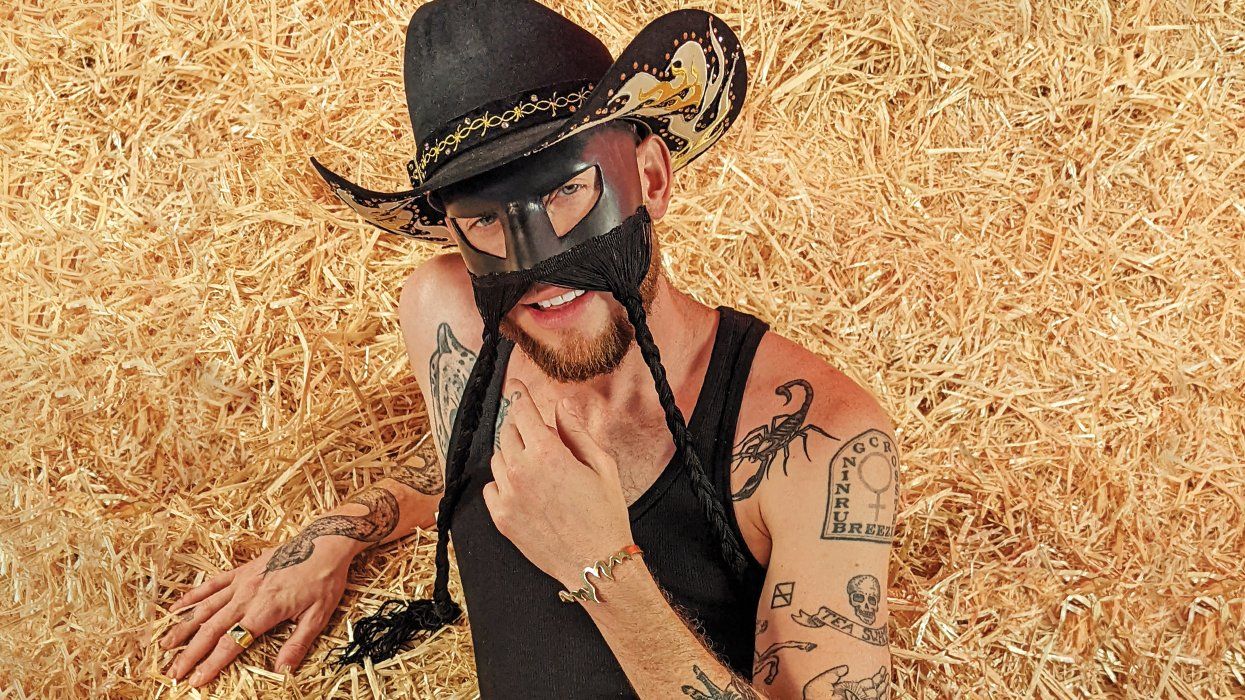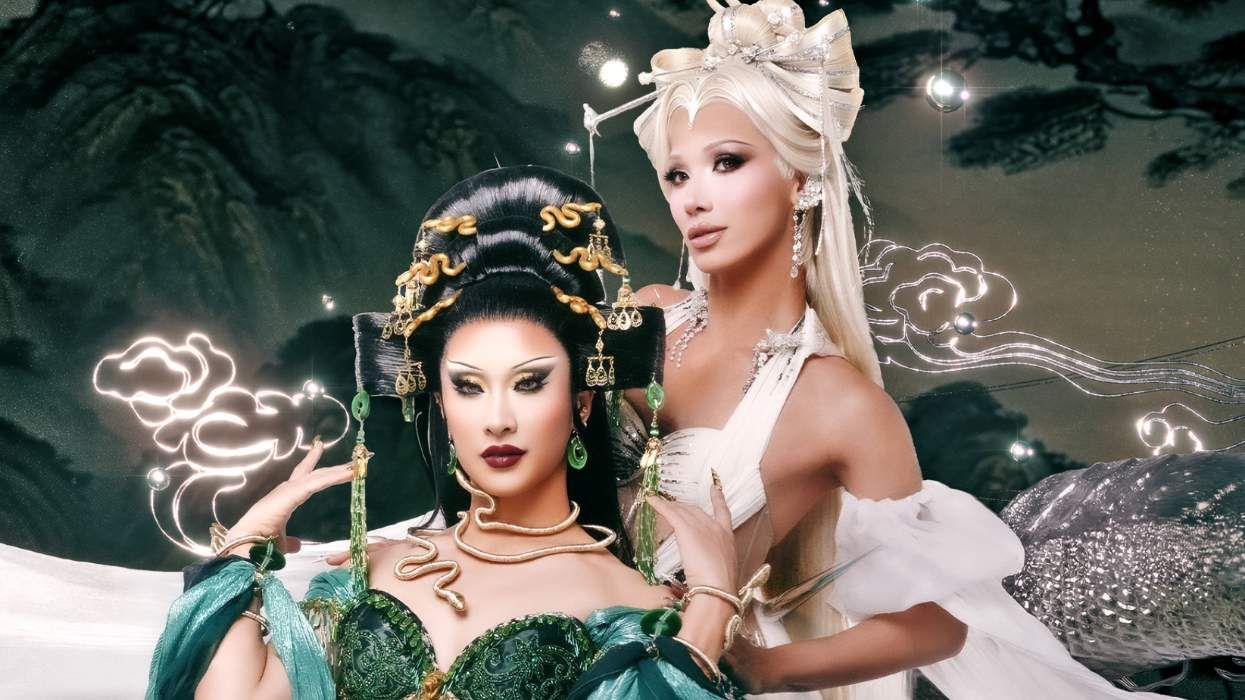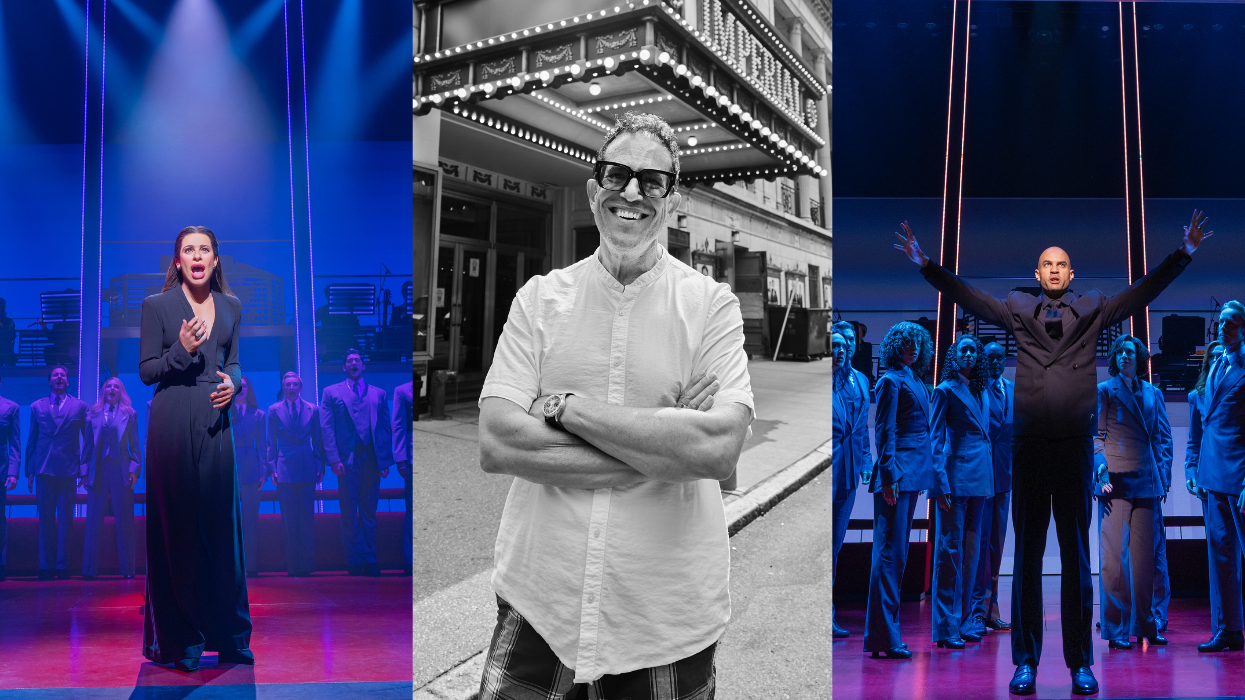For the past 50 years, almost every American child has read Harper Lee's To Kill a Mockingbird, weaving the story of Scout, Atticus Finch, and Boo Radley into our shared cultural consciousness. But with Aaron Sorkin's blockbuster Broadway adaptation of the book, one of the novel's less central characters is finally being given new life. Dill, played in the new production by Gideon Glick, was based on a young Truman Capote, Lee's childhood friend and one of the literary canon's most prominent queer figures.
Glick, who is perhaps best known as part of the original cast of Spring Awakening, was excited to be the first actor to bring this character's historically ignored queer identity to life onstage. Tony voters agreed, and the actor is nominated for Best Featured Actor in a Play at this Sunday's Tony Awards. Out spoke with Glick about his nomination, the important of queering To Kill a Mockingbird, and why this new adaptation is so primed for the current cultural landscape.
What is it like to have read To Kill a Mockingbird, a book that is such an indelible part of our culture, and then now to be bringing it to life on stage?
At first it was daunting and slightly terrifying because people have such strong connotations and experiences with this piece. And it's a really important piece for the nation just as a book and as a movie. And so I would say we were all slightly terrified and the more we worked on it, the more we believed in it. And Aaron wrote such an incredible, incredible adaptation and part, did such extraordinary work that when we got to this stage, we thought we were ready and whatever it was going to be is going to be, there's a point where you have to stop worrying and just you have to do the piece.
What kind of work did you do as an actor to inform this character besides the words on the page?
I did a lot of research for this character. I early on discovered that it was based off of young Truman Capote because Harper Lee and Truman Capote grew up next door to each other in Monroeville, which is where Maycomb County is based off of. And they promised each other that they'd put each other in their first books.
So actually Harper Lee is in Truman Capote's first book, Other Voices, Other Rooms, which he published in 1948, which is also astounding because he was an out queer author, and his protagonist was a 13-year-old queer boy in the deep south, and it was a bestseller. And that for me was really, really exciting. And Harper Lee is in that book. She's the character of Idabel, who is this kind of rough tomboy character.
And that for me was really, really exciting because I realized, oh my God, this queer character has been there all along. And for me, I was really excited about bringing that to life and bringing Capote's essence to the character. And Aaron did a extraordinary job of infusing Capote's life to Dill's backstory. And I realized Capote has such a large, large reputation. I was really struck by how courageous he was and how he kind of lived his life with no fear and that he was this self mythologizing character. And that's what Dill is. And that unlocked everything for me.
We're at this moment of finally recognizing that queerness has been erased from so many cultural artifacts. Do you think it's important that now this production is finally expressing that aspect of who Dill is?
A million percent, and maybe to an extent it couldn't have happened until now. Maybe we weren't ready for it in the 1960s. There was a book written in the 1960s about the 1930s, so it was even harder to extrapolate that there would be queer themes in the book. I realized in studying the book and studying this work, it's a play about race but it's also a play about intersectionality and identity. You have this protagonist who is this tomboy who is, you know, perhaps a lesbian. Harper Lee never publicly talked about her sexuality, but there was a lot of ovations that she was a lesbian, especially in New York that she had a female lover and her best friend who is this young queer boy. And it's a book about empathy and it's a book about otherness and crawling around in another person's skin and yet it wasn't taught, this part. And for me that was the most thrilling part about what I could bring to this adaptation and what Aaron was doing with the adaptation.
As a nation we've held this book so dear for so long and now kind of thematically we're looking back again and saying, what was this? Why do we hold this book so dear and what does it mean now? And challenging those notions too, about civility and empathy, and that you can have that. But that's just the first step.
The second step is, Calpurnia has this extraordinary line in the play where Atticus says, "I believe in being respectful." And she responds, "No matter who you're disrespecting by doing it." And that is Aaron's brilliant spin and shifting of its axis, that these are notions that we hold so dear, especially in this political climate where the other side doesn't feel like they're using civility and, or empathy and we believe strongly in these values, and yet we also need to fight. We need to stand for something because right now we live in very scary times. I think that's why this adaptation is striking such a chord.
To Kill a Mockingbird is really about the intersection of racism and sexual assault, which are two things that now as a society we're finally confronting. Do you think that this conversation is perfectly poised to be had right now?
Oh yes. It's Black Lives Matter. It's police brutality, the #MeToo Movement. These were relevant then and they're relevant now and they haven't gone away. And I think that's what's making people so upset to an extent when they see the show because we realize we haven't come that far and that there's so much work still to be done.
As a queer actor yourself, why is it important for you to be playing this role at this moment?
I don't believe in absolutes in any way, but it's exciting to be a queer man playing a queer character. I think there's a nuance there that comes through. When you're queer, there's a way you hold your body and a way you speak because of the way you had to go through life and that comes out in your work and it adds a lot of really important texture. And that's not to say that straight people can't play gay people, but this is what happens, I think when you can have a queer person play a queer person, there's something that happens that just, it's intangible.
Well that's also a huge conversation we're having right now, this question of representation, especially in entertainment because yes, of course, a straight actor can play a queer character. But on the flip side, queer actors don't get the chance to play straight characters, although that does seem to happen more on Broadway than it does in film.
Yeah, theater seems to be a lot more progressive in terms of representation and who gets to play the parts. I can't speak enough to this because you have Richard Grant who did such extraordinary work in Can You Ever Forgive Me? and Olivia Colman [in The Favourite]. I wouldn't want to not be able to see those performances. However, it sometimes gets a little frustrating when no out gay person has ever won an Academy Award for playing a gay person. And a slew of straight people have. And what typically happens, especially in critical reception, is that the straight people are called brave or courageous or transformative. And there's something about it that it seems a little slightly homophobic in terms of, why is it so brave that they played a gay person? When gay people play straight people, those aren't the same adjectives and I don't think we've really untapped why this is part of our narrative.
Speaking of awards, congratulations on your Tony nomination. What has life been like since the nominations were announced?
I feel deeply moved, deeply humbled, and grateful. I came up in this business. I started working professionally in New York when I was 16 and I moved here when I was 17, and I learned what I was doing while doing it on stage. I grew up in this community, so to be recognized by the community is deeply gratifying and to be recognized as this character is deeply gratifying. This is a character that hasn't really been part of the narrative so much, so to see him come to the forefront, it's very moving. And I'll say, we have three out gay men playing three queer characters in the featured actor category, that's also really empowering to me.
A lot of people know you from Spring Awakening, which was a massive critical and commercial hit with a huge cult fan base. Do you still have fans who like, wait at the stage door, like wanting you to sign their posters?
It still comes. It's interesting, Spring Awakening came out before Instagram and Twitter were really strong. So what's funny is the interaction that you had back then, you could only really have it at the stage door and so it was a different kind of engagement that I don't think exists in the same way now.
After your run in the show has ended, what would you want to do next? Back to musicals?
Yeah, I have started going back and singing lessons because it's been so long. A musical sounds really exciting. Maybe a musical comedy or maybe just a film or a TV series. There's so much, so much good work out there and really interesting, interesting artists I would love to work with. It's hard to really know what's in store for you.
Right. And if you have a Tony in your hand, the world is your oyster.
I don't know about that. But it would certainly be nice.
RELATED | Eight Queer Highlights of the 2019 Tony Nominations


